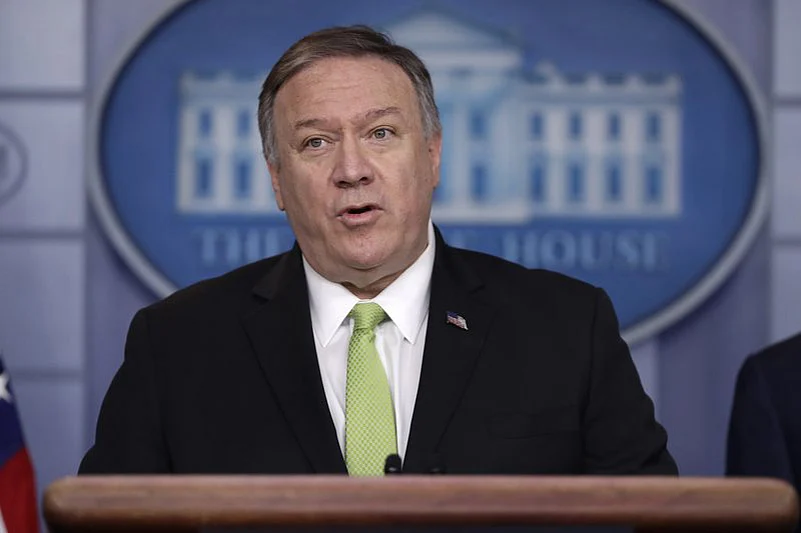US Secretary of State Mike Pompeo on Friday expressed condolences to the people of India for the loss of lives in Galwan Valley during a fierce face-off between the Indian and Chinese armies.
Pompeo took to Twitter to extend his support to the India and wrote: “We extend our deepest condolences to the people of India for the lives lost as a result of the recent confrontation with China.”
The US Secretary of State also wrote: “We will remember the soldiers' families, loved ones, and communities as they grieve.”
The two armies were engaged in a standoff in Galwan and several other areas of eastern Ladakh since May 5 when the two sides clashed on the banks of the Pangong Tso. At least 20 Indian soldiers were killed in the violent face-off with China on Monday night.
Advertisement
The Indian Army officials said on Thursday evening that all Indian soldiers involved in the deadly clashes with the Chinese army at the Galwan Valley on Monday night have been accounted for.
Ten Indian Army personnel including two Majors were released by the Chinese military on Thursday evening following three days of negotiations, people familiar with the development said.
However, there is no official word on the matter.
"It is clarified that there are no Indian troops missing in action," the Army said in a brief statement without elaborating.
Advertisement
After the standoff began, the Indian military leadership decided that Indian troops will adopt a firm approach in dealing with the aggressive posturing by the Chinese troops in all disputed areas of Pangong Tso, Galwan Valley, Demchok and Daulat Beg Oldie.
The Chinese Army has been gradually ramping up its strategic reserves in its rear bases near the LAC by rushing in artillery guns, infantry combat vehicles and heavy military equipment.
The trigger for the face-off was China's stiff opposition to India laying a key road in the Finger area around the Pangong Tso Lake besides construction of another road connecting the Darbuk-Shayok-Daulat Beg Oldie road in Galwan Valley.
The India-China border dispute covers the 3,488-km-long LAC. China claims Arunachal Pradesh as part of southern Tibet, while India contests it.
(With agency inputs)



















